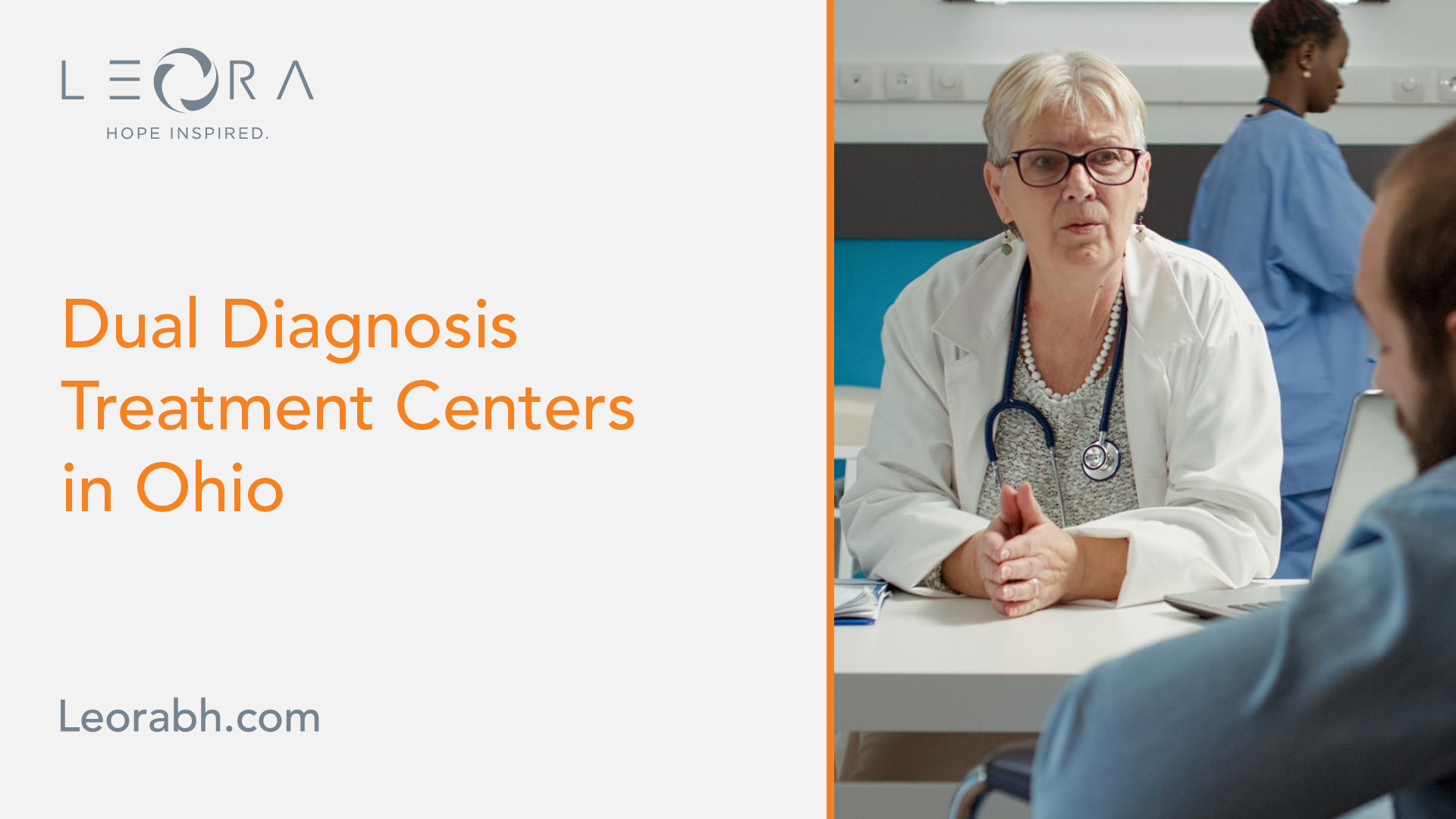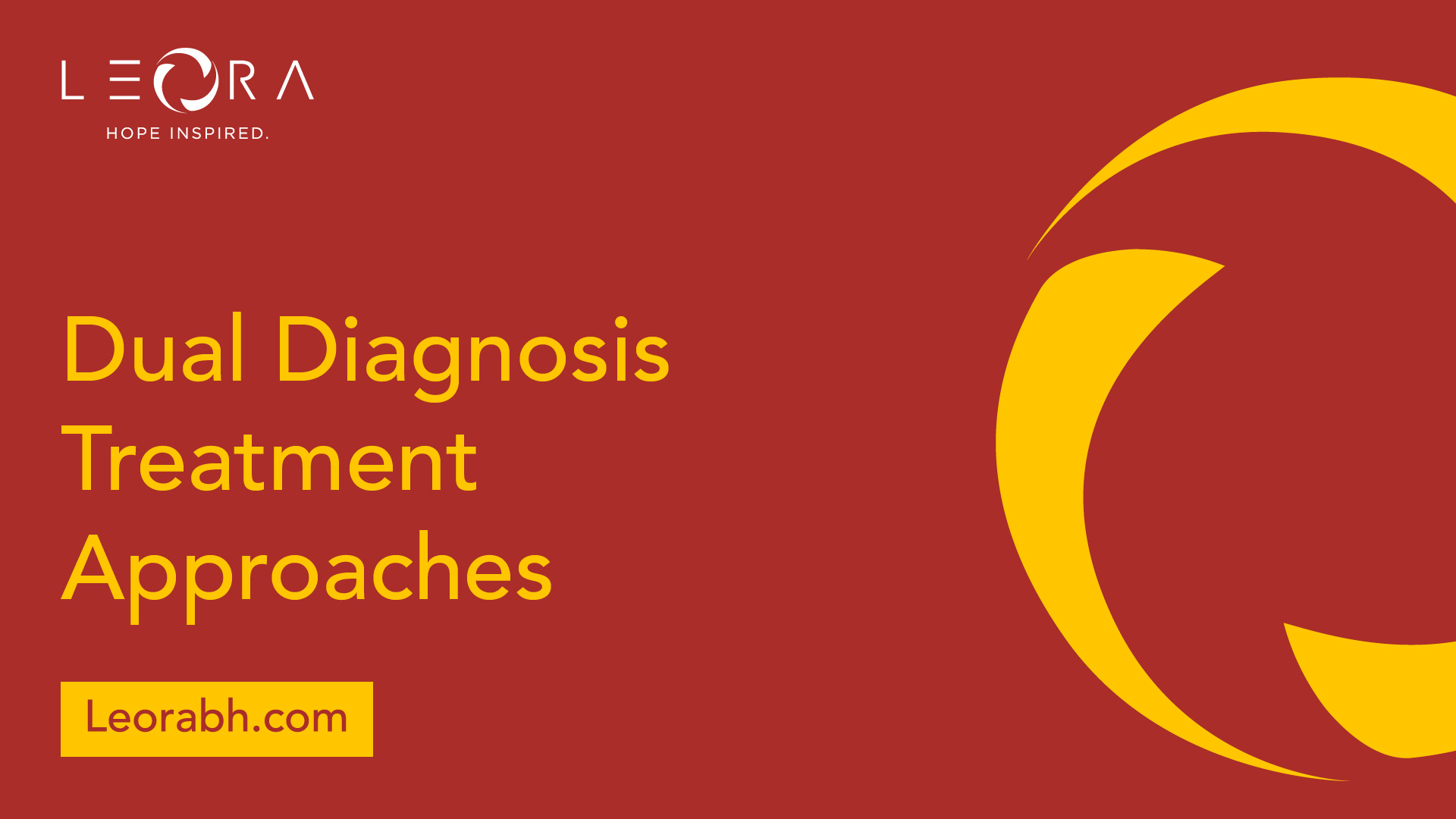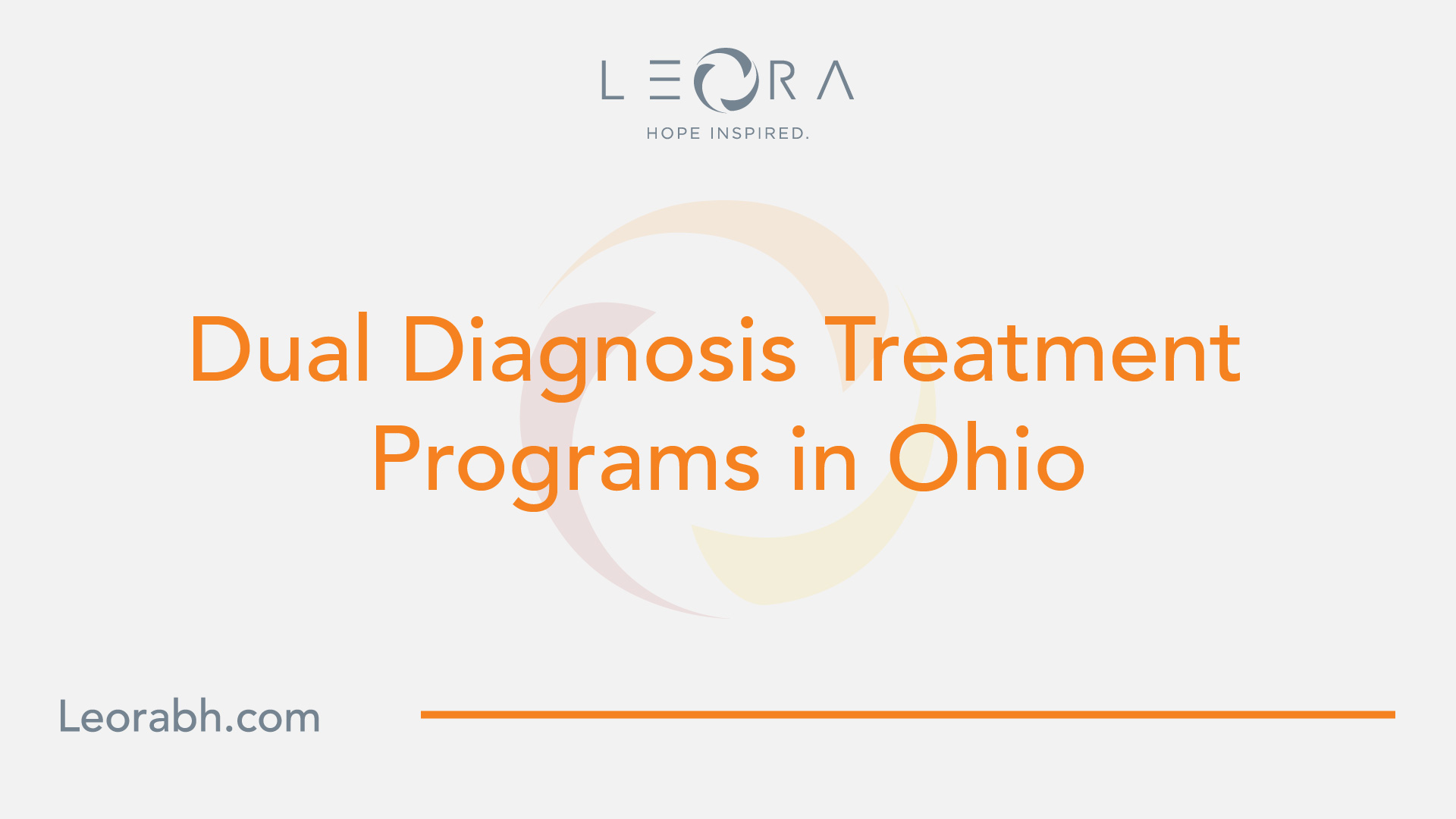Dual Diagnosis Treatment Centers in Ohio
Discover top dual diagnosis treatment centers in Ohio, providing comprehensive care and integrated treatment plans for lasting recovery.
Understanding Dual Diagnosis Treatment Centers
Dual diagnosis treatment centers play a crucial role in addressing the complex needs of individuals facing both mental health and substance addiction disorders. Understanding the definition of dual diagnosis and recognizing the importance of specialized treatment is essential in providing comprehensive care.

Definition of Dual Diagnosis
Dual diagnosis, also referred to as a co-occurring condition, occurs when an individual experiences both a mental health disorder and a substance use disorder simultaneously. It is estimated that one out of every four adults with a mental illness also struggles with a substance abuse disorder [1]. This coexistence of disorders can significantly impact a person's overall well-being and requires integrated treatment approaches.
Importance of Dual Diagnosis Treatment
Dual diagnosis treatment is a unique approach that combines successful treatment aspects from both mental health and substance abuse programs to create a comprehensive treatment program for each patient. Unlike previous treatment approaches that denied mental health treatment until the individual achieved sobriety, dual diagnosis treatment focuses on addressing both mental health and substance abuse concurrently.
The importance of dual diagnosis treatment lies in its recognition that mental health and substance abuse disorders often intertwine and influence each other. By integrating substance abuse treatment and mental health disorder treatment, dual diagnosis programs provide tailored care that addresses the specific needs of individuals facing both disease and addiction.
Dual diagnosis treatment centers offer a structured and supportive environment, helping individuals establish routines and providing professional assistance in addressing mental health disorders. By combining therapy, counseling, medication management, and addiction treatment modalities, these centers aim to promote lasting recovery and improved mental well-being [2].
When seeking treatment for dual diagnosis, it is crucial to consider specialized dual diagnosis treatment centers. These centers understand the unique challenges faced by individuals with co-occurring disorders and provide comprehensive care that caters to both mental health and substance abuse needs.
By recognizing the definition of dual diagnosis and the importance of specialized treatment, individuals can make informed decisions when seeking help for themselves or their loved ones. Dual diagnosis treatment centers in Ohio offer a range of programs and services designed to address the complex needs of individuals facing both mental health and substance addiction disorders.
Dual Diagnosis Treatment Approaches
When it comes to dual diagnosis treatment, a combination of successful approaches from addiction and mental health therapy is employed to create integrated treatment plans. This unique approach recognizes the bidirectional relationship between addiction and mental health, where substance use can contribute to the development of mental health issues, and mental health disorders can increase the risk of substance abuse. By addressing both aspects simultaneously, individuals with dual diagnosis can benefit from a more comprehensive and effective recovery process.

Integrated Treatment Plans
Integrated treatment plans are designed to address both mental health and substance abuse disorders concurrently. This approach recognizes that these conditions often coexist and influence each other, requiring a comprehensive treatment approach to address both aspects effectively. Integrated treatment plans typically include:
- Group therapy: Group therapy provides individuals with dual diagnosis the opportunity to connect with others who are facing similar challenges. It offers a supportive environment where individuals can share their experiences, gain insights, and learn coping strategies from one another.
- Individual counseling: Individual counseling sessions allow individuals to work one-on-one with a therapist to delve deeper into their unique challenges and develop personalized strategies for managing their mental health and substance abuse issues.
- Medication management: In some cases, medication can be an essential component of dual diagnosis treatment. Medications may be prescribed to manage mental health symptoms and aid in substance abuse recovery. However, the use of medication should always be closely monitored and individualized to ensure the best outcomes.
Case Management Services
Case management services play a vital role in dual diagnosis treatment by providing comprehensive support and coordination of care. Case managers act as advocates for individuals with dual diagnosis, helping them navigate the complexities of the treatment system and ensuring they receive the appropriate services and resources. Some of the key responsibilities of case managers include:
- Treatment coordination: Case managers work closely with various healthcare professionals involved in the individual's treatment to ensure a cohesive and integrated approach. They coordinate appointments, communicate treatment goals, and monitor progress to ensure continuity of care.
- Resource coordination: Case managers help individuals access community resources and support services that can aid in their recovery. This may include connecting them with support groups, vocational training programs, housing assistance, or other relevant resources.
- Crisis intervention: In times of crisis or relapse, case managers provide immediate support and guidance. They help individuals develop coping strategies, create safety plans, and connect them with appropriate crisis intervention services when needed.
By utilizing integrated treatment plans and incorporating case management services, dual diagnosis treatment centers in Ohio aim to provide comprehensive and individualized care for individuals with dual diagnosis. This approach recognizes the unique challenges faced by these individuals and strives to address both mental health and substance abuse disorders effectively. For more information on dual diagnosis treatment centers in Ohio, you may consider exploring the programs offered by the Recovery Institute of Ohio and the Ohio Addiction Recovery Center.
Dual Diagnosis Treatment Programs in Ohio
When it comes to dual diagnosis treatment, it is crucial to find the right treatment program that addresses both substance abuse and mental health disorders. In Ohio, there are reputable treatment centers that specialize in providing comprehensive care for individuals facing dual diagnosis challenges. Two notable dual diagnosis treatment programs in Ohio are the Recovery Institute of Ohio and the Ohio Addiction Recovery Center.

Recovery Institute of Ohio
The Recovery Institute of Ohio offers a dual diagnosis treatment program that combines intensive inpatient care with outpatient services. Their approach recognizes the importance of addressing both addiction and mental health disorders simultaneously. This integrated treatment model ensures that patients receive the comprehensive care they need to achieve lasting recovery.
The inpatient program at the Recovery Institute of Ohio provides a highly structured environment with 24/7 support and care. This level of intensive treatment allows individuals to focus on their recovery journey while receiving professional guidance and support. The program emphasizes a combination of evidence-based therapies, counseling, and medication management tailored to meet the unique needs of each patient.
Following the inpatient program, the Recovery Institute of Ohio offers outpatient services to support individuals as they transition back into their daily lives. These services may include individual therapy, group counseling, and ongoing medication management. By providing a continuum of care, the Recovery Institute of Ohio aims to promote sustained recovery and long-term success.
Ohio Addiction Recovery Center
The Ohio Addiction Recovery Center (OARC) is a licensed facility with the Ohio Department of Mental Health and Addiction Services. They specialize in evidence-based treatment for individuals with dual diagnosis needs. OARC's comprehensive approach focuses on breaking the cycle of addiction by addressing underlying mental health conditions.
OARC's dual diagnosis treatment program begins with an inpatient rehab program that typically lasts 30 to 45 days. This intensive phase of treatment allows individuals to receive personalized care in a supportive environment. The program incorporates evidence-based therapies, such as cognitive-behavioral therapy (CBT) and dialectical behavior therapy (DBT), to address the complex needs of patients.
After completing the inpatient program, individuals transition to outpatient services, which provide ongoing support and therapy. OARC's outpatient services aim to continue the progress made during inpatient treatment and help individuals maintain their recovery in their daily lives. This comprehensive approach ensures that patients receive the ongoing care and resources they need to achieve lasting sobriety.
By choosing a dual diagnosis treatment program at the Recovery Institute of Ohio or the Ohio Addiction Recovery Center, individuals in Ohio can access specialized care that addresses both their addiction and mental health needs. These programs offer evidence-based treatment methodologies, professional support, and a structured environment to facilitate sustained recovery and improved overall well-being.
Success Rates and Effectiveness
When considering dual diagnosis treatment centers in Ohio, it's important to understand the success rates and effectiveness of these programs. The success rates of rehab programs in Ohio can vary, but they generally range from 40% to 60% based on individuals who completed their treatment program and achieved sustained recovery for at least one year following their discharge in 2019, according to a report published by the Ohio Department of Mental Health and Addiction Services [3].
To ensure effectiveness, dual diagnosis treatment centers in Ohio provide comprehensive care that addresses the physical, emotional, and psychological aspects of addiction. These programs offer individual and group therapy, medical support, relapse prevention strategies, and aftercare planning. By addressing all dimensions of addiction, these centers aim to improve long-term recovery outcomes for individuals [3].
In Ohio, successful rehab programs recognize the importance of ongoing support and aftercare services in achieving sustained recovery. These services may include support groups, counseling, and access to community resources. By providing continued support, individuals have a better chance of maintaining their recovery and reducing the risk of relapse [3].
It's important to note that successful treatment outcomes also depend on individual factors such as motivation, commitment to recovery, and willingness to actively participate in the treatment process. Additionally, the quality of the treatment program, the expertise of the staff, and the individualized approach to care can significantly impact the success rates of dual diagnosis treatment centers.
While success rates can vary, it's crucial to seek reputable treatment centers that offer evidence-based therapies and have a track record of helping individuals with dual diagnosis achieve sustained recovery. By selecting a comprehensive and effective treatment program, individuals in Ohio can increase their chances of overcoming addiction and improving their overall well-being.
For additional resources and information on rehab programs in Ohio, you may consider exploring options such as Lincoln Recovery, Monarch Shores, and Crossroads Health. These centers may provide the support and care needed for individuals with dual diagnosis seeking recovery.
Remember, seeking professional help and reaching out to alcohol treatment centers in Ohio or addiction outpatient treatment near me is an important step towards overcoming addiction and achieving lasting recovery.
Additional Dual Diagnosis Treatment Centers in Ohio
In addition to the previously mentioned dual diagnosis treatment centers, there are several other reputable facilities in Ohio that specialize in providing comprehensive care for individuals with co-occurring mental health and substance abuse disorders.
Lincoln Recovery
Located in Raymond, Illinois, Lincoln Recovery offers dual diagnosis treatment programs that address a range of mental health conditions, including anxiety, bipolar disorder, depression, personality disorders, PTSD, and trauma. They also provide substance abuse treatment alongside mental health services. The facility boasts amenities such as a heated indoor pool and a state-of-the-art gym, ensuring a comfortable environment for individuals seeking recovery and healing. To learn more about Lincoln Recovery, you can visit their website.
Monarch Shores
Monarch Shores, situated in Dana Point, California, is a treatment center that provides specialized care for individuals with co-occurring substance abuse and mental health disorders. Though not located directly in Ohio, Monarch Shores is included here for its comprehensive treatment programs and the potential appeal it may hold for individuals seeking a luxury treatment experience. The facility offers personalized gourmet meals and 24/7 fitness facilities, creating a supportive and comfortable environment for individuals on their recovery journey. To explore Monarch Shores in more detail, please visit their website.
Crossroads Health
Crossroads Health, situated in Mentor, Ohio, is dedicated to providing comprehensive, trauma-informed substance abuse treatment services for adults, adolescents, and children. They offer specialized care for various mental health conditions, including dual diagnosis substance abuse and anxiety and depression. The facility focuses on integrating evidence-based practices and providing individualized treatment plans to address the unique needs of each person. To learn more about Crossroads Health and their services, you can visit their website.
These additional dual diagnosis treatment centers in Ohio aim to provide individuals with the support and treatment they need to address both their mental health and substance abuse concerns. Each facility has its own unique approach and amenities, allowing individuals to choose the center that aligns best with their specific needs and preferences.
Dual Diagnosis Rehab Considerations
When seeking treatment at dual diagnosis rehab centers in Ohio, there are several important considerations to keep in mind. These considerations can help guide individuals in making informed decisions about their treatment options. Two key factors to consider are insurance coverage and therapeutic approaches.
Insurance Coverage
Most insurance plans in Ohio will cover either all or a portion of the treatment in dual diagnosis rehab centers. It is essential to review your insurance policy to understand the extent of coverage for dual diagnosis treatment. Contacting your insurance provider directly or speaking with the admissions staff at the rehab centers can provide clarity on the financial aspects of treatment. This allows you to plan your treatment journey effectively and alleviate any concerns surrounding the cost of care.
Therapeutic Approaches
Dual diagnosis treatment can be administered in various settings, including inpatient, outpatient, and even virtual environments. The therapeutic approach should be customized based on each patient's care needs and substance use history. Inpatient rehab provides a more hands-on approach with 24/7 support and care, making it the best option for dual diagnosis treatment. Outpatient programs offer flexibility, allowing individuals to receive treatment while living at home. Virtual treatment options provide accessibility for those who may have logistical or transportation barriers [4]. The choice of therapeutic approach depends on the individual's specific needs and circumstances.
In addition to the treatment setting, it is important to consider the therapeutic modalities utilized by the dual diagnosis rehab centers. These may include individual therapy, group therapy, cognitive-behavioral therapy (CBT), dialectical behavior therapy (DBT), and other evidence-based approaches. It is beneficial to inquire about the specific therapeutic interventions offered by the rehab centers and how they align with your personal preferences and treatment goals.
By considering insurance coverage and therapeutic approaches, individuals can make informed decisions about the dual diagnosis rehab centers in Ohio that will best meet their needs. Remember that each person's journey to recovery is unique, and finding the right treatment center and approach is crucial in achieving long-term success. If you are seeking further information about treatment options, you may also want to explore alcohol treatment centers in Ohio, addiction outpatient treatment near me, residential inpatient treatment substance abuse, and residential drug treatment programs.
References
Find Your Inner Light
Related Articles
Contact Us
Leora Behavioral Health offers a comprehensive addiction treatment programs to help you get your life back on track.
Our trained professionals will work with you to develop a personalized treatment plan that meets your unique needs. If you or someone you know is struggling with addiction, reach out to Leora Behavioral Health today.


.svg)





.svg)
.svg)
.svg)
.svg)